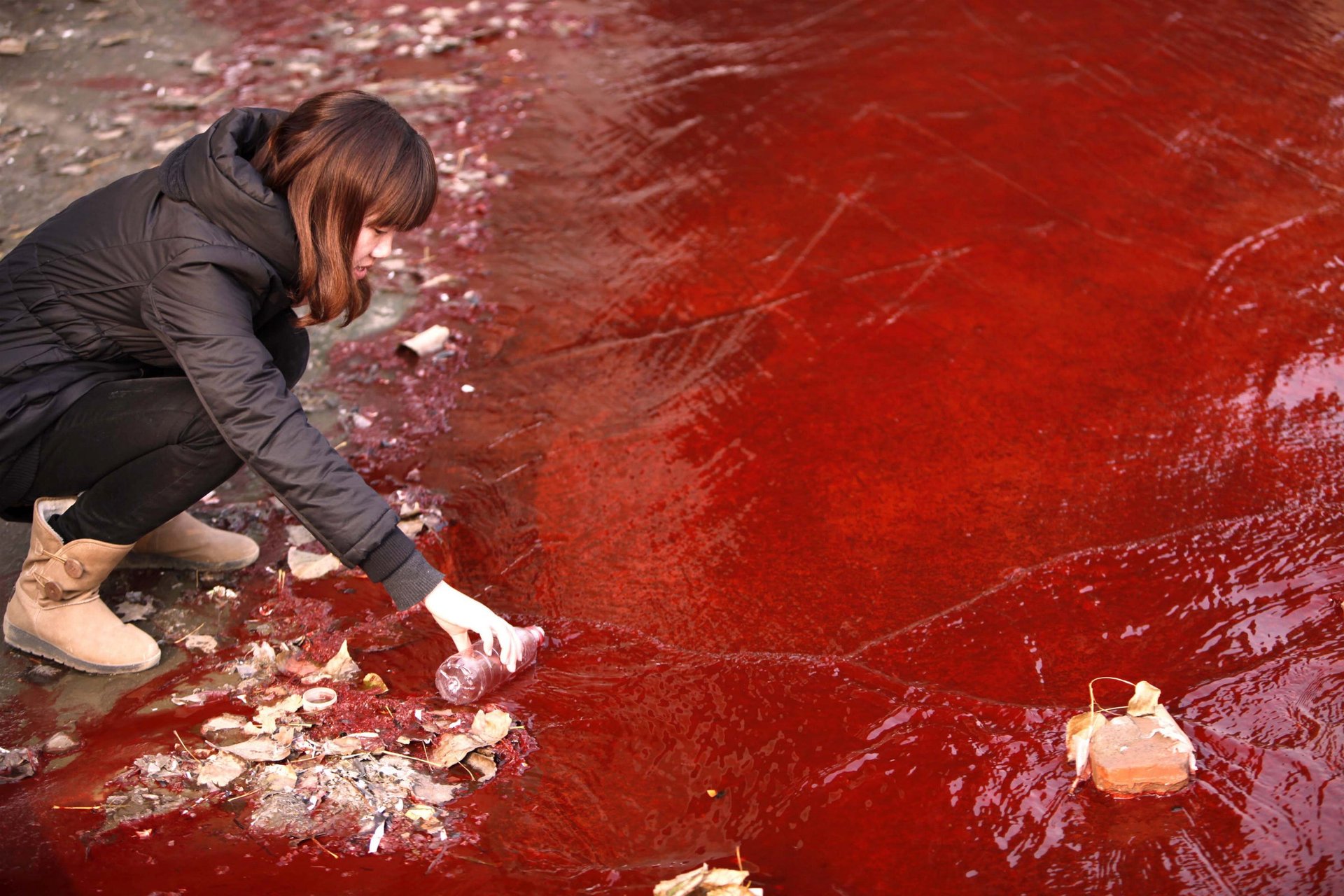Just how likely is China to execute anyone for fouling up the environment?
The Chinese government is getting serious about pollution—deathly serious, in fact. Severe polluters may now be put to death, as Xinhua reports, replacing penalties that had been “lax and superficial,” according to new judicial guidelines.


The Chinese government is getting serious about pollution—deathly serious, in fact. Severe polluters may now be put to death, as Xinhua reports, replacing penalties that had been “lax and superficial,” according to new judicial guidelines.
That’s certainly one way to give teeth to the State Council’s new anti-pollution measures (paywall) since, in theory, it could affect a lot of companies. Already in 2013, Chinese media have reported 2,185 episodes of polluting companies (link in Chinese).
And the Ministry of Environmental Protection (MEP) appears finally to be gaining clout—last month it charged 88 companies in northern China alone with water pollution. Given that when MEP butts heads with companies—particularly powerful state-owned ones—the latter usually win, that’s something of a coup.
But only a symbolic one. When they’re levied at all, fines are far too little to make big corporate polluters think twice about their crimes. One city’s environmental regulator recently scored a minor triumph when it succeeded in fining oil refiner Sinopec. But Sinopec’s annual revenues are $407 billion; the fine was for $14,700. And power company Huaneng was just given a “severe” fine of $13,000 for routinely turning off its coal scrubbers.
One of the reasons for the light penalties and spotty regulation is that state-owned enterprises (SOEs) are powerful cogs in China’s centrally planned economy. In addition to driving economic growth and providing jobs, they pay profits to their shareholders—the central and provincial governments. Plus, SOE bosses are essentially political appointments, and are high up in the Communist Party hierarchy. That has stymied both regulation and enforcement in the past.
Though the threat of a death sentence should deter polluters more than a light fine, it’s unclear exactly whose life would be on the line if a company breaks the rules. All the same, the death sentences are unlikely to be an empty threat. Amnesty International estimates that China carries out the majority of the world’s executions (pdf, p.20), though the exact numbers are a “state secret” (link in Chinese).
And while political clout might protect the heads of SOEs from having their necks wrung, it isn’t necessarily a shield once a crime is made public. In fact, it can make them into bigger targets. Just yesterday (June 19), a local official who raped 11 girls was executed, after outrage erupted over China’s heretofore light treatment of alleged child rapists. As Xinhua put it, “The execution was carried out at a time when China has vowed to beef up protection for juveniles following a series of sexual abuse cases involving children.” Meanwhile, the former minister of railway faces a possible death sentence sentence in a trial now underway over corruption—a pet issue of the new administration.
But a clue as to how capital punishment might apply to polluters is in the milk powder scandal that killed six children in 2008. The CEO of Sanlu, the producer of milk powder that was found to be laced with toxic melamine, faced the death penalty, though she ultimately got life in jail. And though the government did execute smaller fry—the melamine middleman and a local dairy firm’s boss—no one on Sanlu’s board ever stood trial. Neither, for that matter, did government officials who delayed a recall until after the Beijing Olympic Games that summer, despite having known about the contamination many months prior.